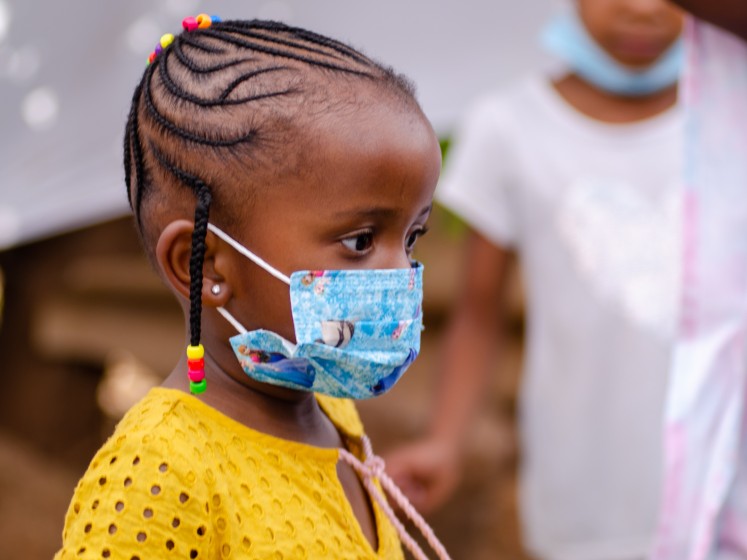 Young South African girl in mask. Steward Masweneng on Unsplash
Young South African girl in mask. Steward Masweneng on Unsplash
The World Health Organization Regional Office for Africa (AFRO), in collaboration with LSE and the European Observatory on Health Systems and Policies, has launched a new partnership which will improve generation of evidence on health systems and knowledge transfer in the African region.
The African Health Observatory Platform on Health Systems & Policies (AHOP) will provide a forum for those working on African national and regional health systems to share experiences, and encourage greater use of high-quality evidence by decision makers. The new platform, hosted by AFRO within the integrated African Health Observatory, seeks to strengthen the design and performance of national and regional health systems.
The work will be coordinated through leading research institutions in Ethiopia, Kenya, Nigeria, Rwanda and Senegal. These national centres will collect, analyse and integrate relevant evidence on health policy to support decision makers.
Through frequent consultation with policy makers, AHOP will be able to provide support and evidence which is timely, reliable and tailored.
AFRO’s Dr Humphrey Karamagi, team leader of the Data, Analytics, and Knowledge Management unit explains, “It is a significant step. So much data and research in Africa is produced, but not always shared.
Take for instance countries’ different approaches to managing COVID-19. Kenya responded differently from Senegal, which handled the shock event unlike Ethiopia, and so on. The experience-sharing occurring between countries on all types of health conditions could be used to deliver services that people are actually asking for – responding to demand and the expressed needs of individuals, households, and communities.”
The consortium of national centres includes Addis Ababa University, Institut Pasteur Dakar, KEMRI Wellcome, University of Nigeria, and University of Rwanda. These institutions will produce locally-led analysis, including country-specific profiles, as well as policy briefs and dialogues on topical issues. In time, it is expected the number of centres will rapidly expand to cover more countries and institutions.
This joint knowledge brokering network is funded by grants from the Bill & Melinda Gates Foundation.
Commenting on the launch, Professor Elias Mossialos, Director of LSE Health said, “We welcome the opportunity to work with the programme partners to foster national, regional and global knowledge exchange and dialogue on health systems.”
LSE Director Minouche Shafik echoed Professor Mossialos’ sentiments, adding, “This partnership underscores the School’s commitment to producing world-class health research and will boost our rapidly-growing expertise on health systems around the globe.”